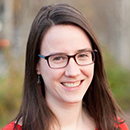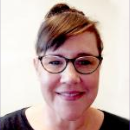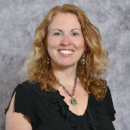Thought Leader Dialogue: Designing Computing Education for Everyone
Thursday, June 8, 2023
Phones. Tablets. Cars. We are constantly interacting with computers, yet few of us get to participate in designing the systems and interfaces that increasingly mediate our everyday lives. This is because computing education has historically focused on training a select few to become professional software developers. However as computing is increasingly viewed as a core literacy that has value for all learners, this landscape is changing. In this dialog, we bring together researchers with distinct perspectives to discuss approaches for designing computing learning experiences for everyone. We ask: how can we design tools, curricula, and learning communities to foster interest, engagement, and broad participation in computing education? Tackling questions related to equity, scale, and context across K-12 and higher education, this dialog will highlight the role of thoughtful design in achieving the vision of computing education for everyone.
Moderator

Dr. Nell O'Rourke
Assistant Professor·Northwestern University
Nell O'Rourke is an Assistant Professor in Computer Science and the Learning Sciences at Northwestern University, where she co-directs the interdisciplinary Delta Lab. Her research explores the design of novel computational systems to support motivation and learning in STEM domains. Recent projects include studying student beliefs about programming ability in introductory computer science courses, designing game mechanics that encourage students to practice problem-solving skills, and developing web inspection tools that allow novice developers to learn directly from authentic professional websites. Her interventions have been used by over 100,000 students online, adopted by companies, and integrated into classrooms. Her work has been recognized through an NSF CAREER Award, a Google Systems Research Award, and best paper awards and nominations at SIGCSE, UIST, and CHI.
Speakers

Dr. Betsy DiSalvo
Associate Professor·Georgia Tech
Betsy DiSalvo is an Associate Professor and the Interim Chair of the School of Interactive Computing. DiSalvo is an expert in responsible computing, learning sciences, participatory design, and human-centered computing. DiSalvo directs the Culture and Technology Lab (CAT Lab) where members investigate the impact of culture on technology use and production and applies that knowledge to developing novel socio-technical environments and tools. The CAT Lab works with a wide range of community organizations using participatory methods to better understand and design technology for minoritized groups. DiSalvo's participatory design efforts have led to the development of multiple award-winning educational games and the development of DataWorks and Glitch Game Testers, long-standing research platforms investigating novel technology workplace learning. DiSalvo is on the Editorial Board for Transaction in Computing Education and has held leadership roles in ACM and educational research associations. She has published two books and over 100 scientific papers. She received her Ph.D. from Georgia Tech in Human-Centered Computing in 2012, holds and BA in Fine Art, and previously worked in the Learning Research and Development Center at the University of Pittsburgh.

Dr. Mark Guzdial
Professor·University of Michigan
Mark Guzdial is a Professor in Computer Science & Engineering and the Director of the Program in Computing for the Arts and Sciences (PCAS) in the College of Literature, Science, and the Arts at the University of Michigan. He studies how people learn computing and how to improve that process, with a particular focus on students using programming to learn something other than CS. He was one of the leads on the NSF alliance “Expanding Computing Education Pathways" which helped US states improve and broaden their computing education. With his wife and colleague, Barbara Ericson, he received the 2010 ACM Karl V. Karlstrom Outstanding Educator award for developing Media Computation as a way to teach computer science. He is an ACM Distinguished Educator and a Fellow of the ACM. He wrote the book Learner-Centered Design of Computing Education: Research on Computing for Everyone (Morgan & Claypool, 2015). He received the 2019 ACM SIGCSE Outstanding Contributions to Education award.

Dr. Tiffany Barnes
Professor·North Carolina State
Tiffany Barnes is a Distinguished Professor of Computer Science at NC State University. She received the B.S. and M.S. degrees in Computer Science and Mathematics, and the Ph.D. degree in Computer Science from N.C. State. A member of Phi Beta Kappa and the NC State Golden Chain Society, she has served ACM SIGCSE (Symposium Chair 2018, Program Chair 2017, Board 2011-2016), IEEE Special Technical Community on Broadening Participation (Chair, and founder of the RESPECT conference (2015-present)), the International Educational Data Mining Society (EDM chair 2016, board 2011-present), STARS Computing Corps (Co-Director 2006-present, Celebration Chair 2011, 2015), Foundations of Digital Games (Program Chair 2014), the International Society for AI in Education (Board 2016-Present), and IEEE Transactions on Learning Technologies (Assoc. Editor 2016-Present). Dr. Barnes received an NSF CAREER Award for her novel work in using data and educational data mining to add intelligence to STEM learning environments. Dr. Barnes is co-Director for the STARS Computing Corps, a consortium of universities that engage college students in outreach, research, and service to broaden participation in computing. Her research focuses on AI for education, educational data mining, serious games for education, health, and energy, computer science education, and broadening participation in computing education and research.
